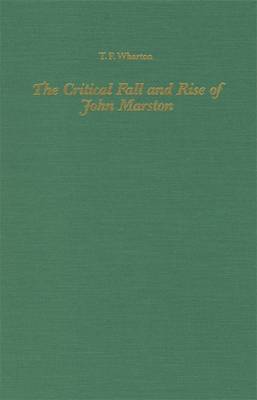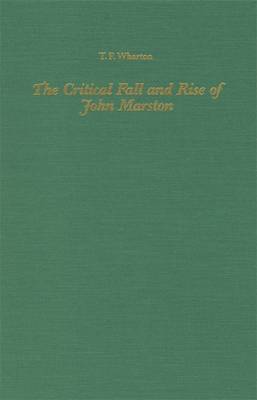
- Afhalen na 1 uur in een winkel met voorraad
- Gratis thuislevering in België vanaf € 30
- Ruim aanbod met 7 miljoen producten
- Afhalen na 1 uur in een winkel met voorraad
- Gratis thuislevering in België vanaf € 30
- Ruim aanbod met 7 miljoen producten
Zoeken
Omschrijving
Analysis of critical reception of Marston, also revealing for light it sheds on relations between dramatists of late 16c -early 17c. John Marston, the most infamous of the late 16th and early 17th-century English satirists and dramatists, achieved both fame and notoriety, and an accepted place in the Elizabethan/Jacobean canon, for his scathing satires such asThe Scourge of Villanie, and other plays, most notably Antonio's Revenge; his works are characterised by a highly individual verbal style and a variety of lurid theatrical devices.
Fred Wharton's study answers along-felt need for a full-length analysis of Marston's critical reception, a story almost as wild and extravagant as the rhetoric of Marston's own work. He suggests the reasons underlying Marston's fall and rise, and examines those features of his work most likely to repel or attract successive readerships.
Fred Wharton's study answers along-felt need for a full-length analysis of Marston's critical reception, a story almost as wild and extravagant as the rhetoric of Marston's own work. He suggests the reasons underlying Marston's fall and rise, and examines those features of his work most likely to repel or attract successive readerships.
Specificaties
Betrokkenen
- Auteur(s):
- Uitgeverij:
Inhoud
- Aantal bladzijden:
- 144
- Taal:
- Engels
- Reeks:
- Reeksnummer:
- nr. 16
Eigenschappen
- Productcode (EAN):
- 9781879751897
- Verschijningsdatum:
- 28/07/1994
- Uitvoering:
- Hardcover
- Formaat:
- Genaaid
- Afmetingen:
- 160 mm x 232 mm
- Gewicht:
- 408 g

Alleen bij Standaard Boekhandel
+ 173 punten op je klantenkaart van Standaard Boekhandel
Beoordelingen
We publiceren alleen reviews die voldoen aan de voorwaarden voor reviews. Bekijk onze voorwaarden voor reviews.











